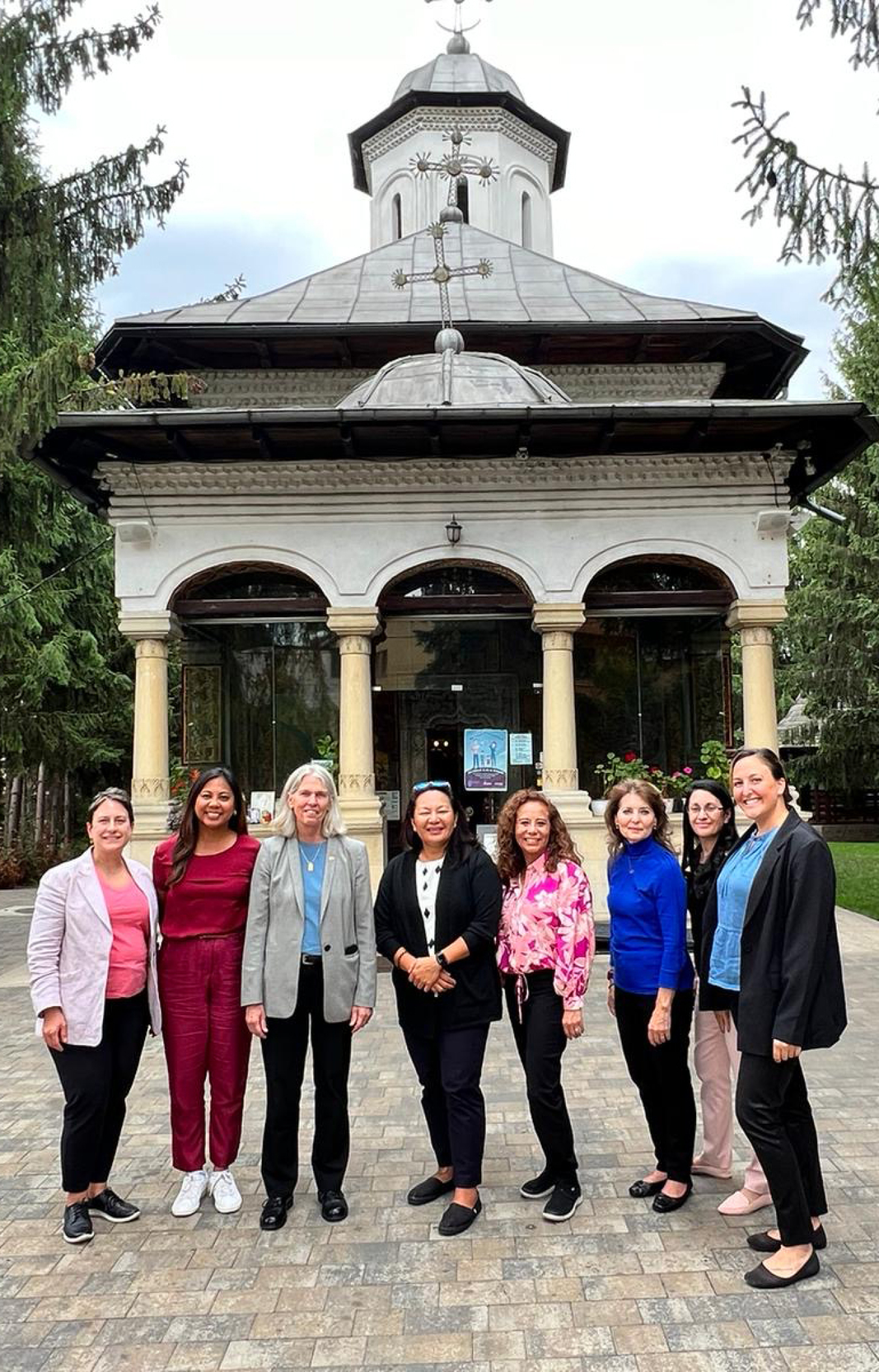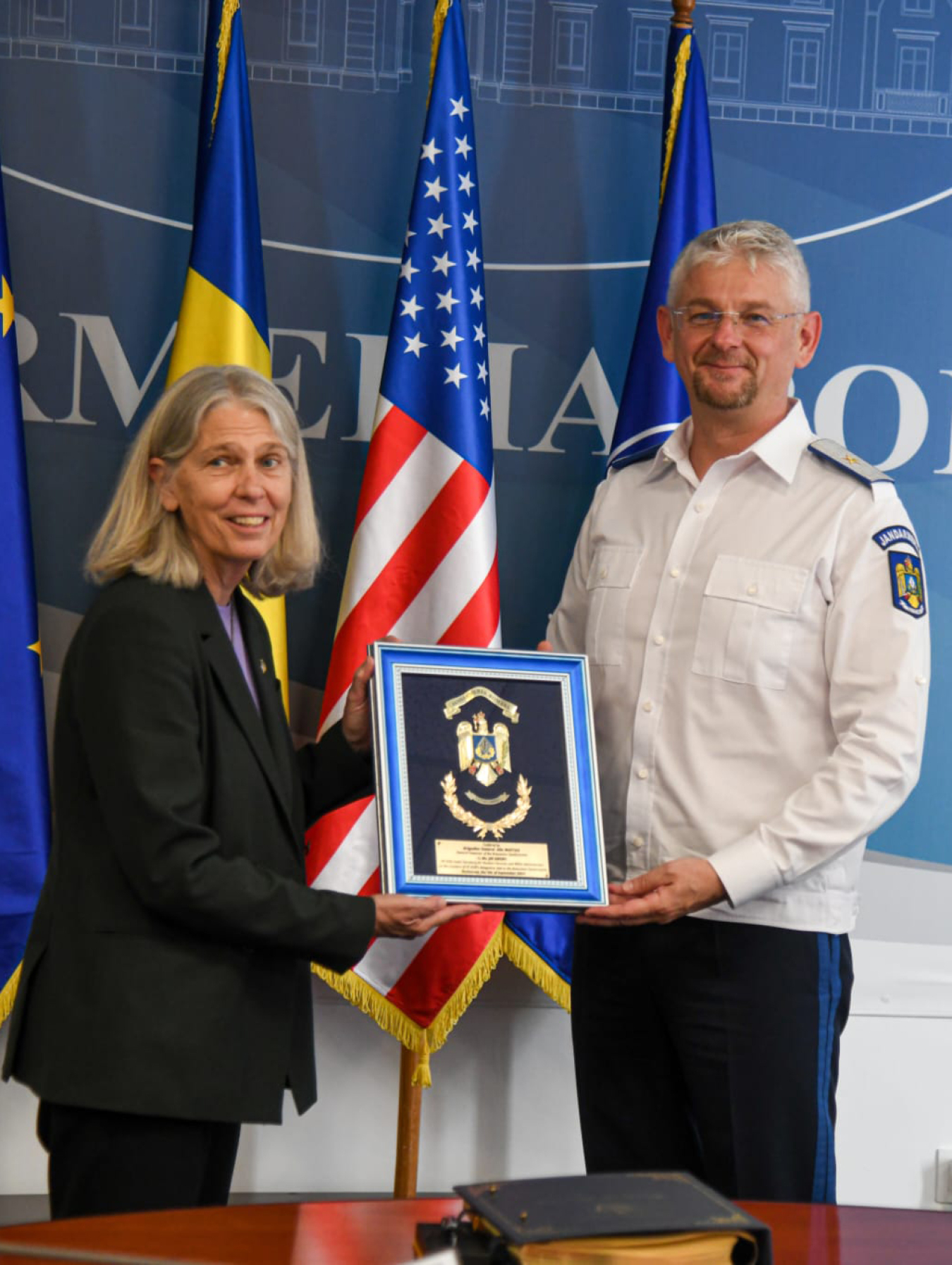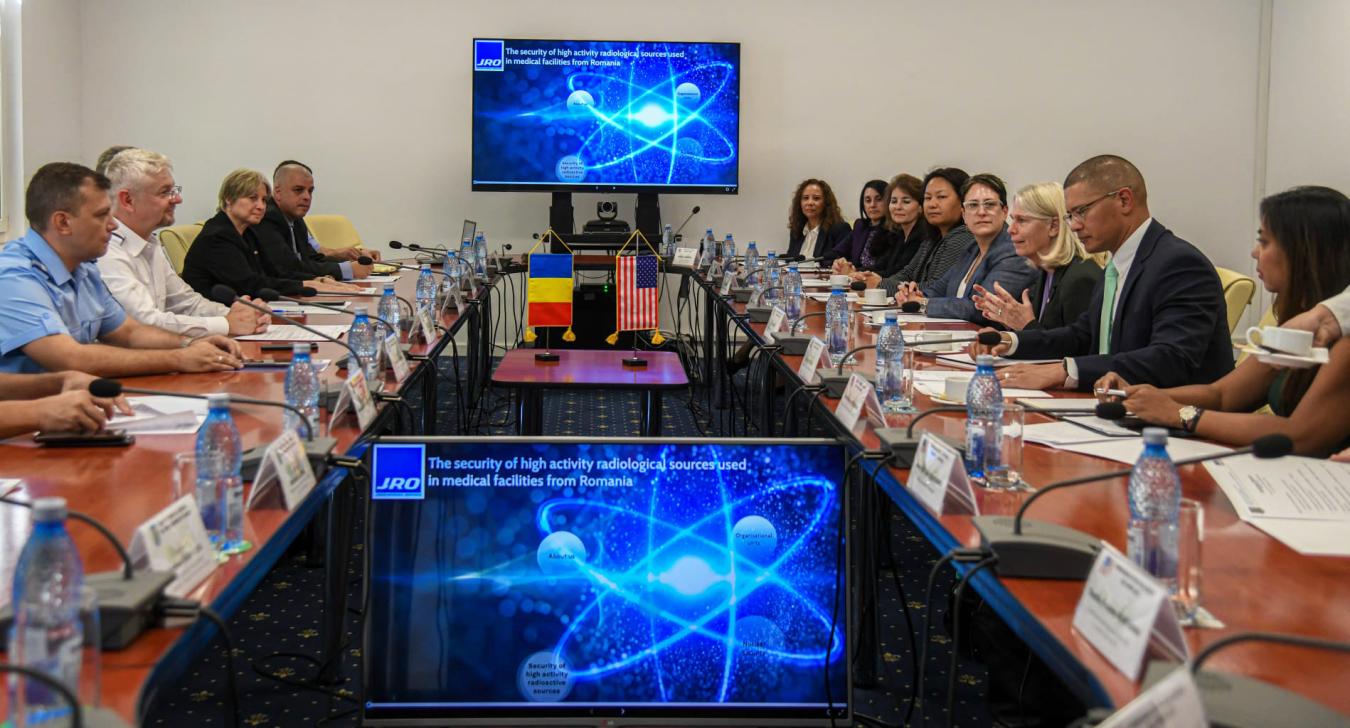This week, NNSA and Romania’s National Commission for Nuclear Activities Control celebrated 15 years of partnership in advancing radiological security.
National Nuclear Security Administration
September 13, 2024
WASHINGTON – This week, the U.S. Department of Energy’s National Nuclear Security Administration and Romania’s National Commission for Nuclear Activities Control (CNCAN) celebrate 15 years of partnership in advancing radiological security.

To commemorate the partnership, NNSA’s Office of Radiological Security (ORS) hosted an anniversary event and site visits in Bucharest, Romania on Sept. 9-11. NNSA Administrator Jill Hruby and U.S. Ambassador Kathleen Kavalec joined CNCAN and other Romanian Government representatives for the anniversary ceremony. Follow-on visits to the Gendarmerie Central Monitoring Center, Pitesti Institute for Nuclear Research, and Fundeni Clinical Institute further highlighted the wide scope of radiological security cooperation.
”Our collaboration has strengthened over time and reflects both better approaches to nuclear and radiological security as well as evolving standards to meet new threats. Currently, we are focused on promoting non-radioisotopic alternative technologies in select areas. This radiological source replacement project aims to completely remove high activity Cesium-137 from Romania, said Administrator Hruby during the anniversary event in Bucharest. “I am confident the next 15 years of cooperation between our two great organizations will be important, and even more impactful.”
I am confident the next 15 years of cooperation between our two great organizations will be important, and even more impactful.
Over the course of the 15-year partnership, ORS has worked with Romania to:
- Provide technical and financial support for physical security upgrades to over 15 radiological facilities in 10 different Romanian cities
- Help establish a central monitoring center at the Romanian Gendarmerie which supports the coordination of a rapid response to a radiological theft event
- Pilot ORS’s transport security tracking and reporting (TSTAR) system for the first time internationally, where Romanians deployed TSTAR to monitor material shipments and provided ORS with technical and operational feedback
- Advocate for radiological security with regional partners, such as Moldova, and within international forums, such as the International Atomic Energy Agency and the World Institute for Nuclear Security.
- Reduce the number of high-activity radioactive sources in Romania by securely removing and storing disused devices

“Facilitating the continuous use of radioactive sources while ensuring they are used in a secure manner to protect individuals, society, and the environment remains a challenge for the actors involved in this area. With the support of ORS, the Romanian facilities received valuable support which helped to prevent radioactive sources from being used in malicious acts globally,” said Cantemir Ciurea-Ercau, CNCAN President.
ORS’s mission is to enhance global security by preventing radioactive materials from use in acts of terrorism. ORS works with government, law enforcement, and businesses across the globe to protect radioactive sources used for medical, research, and commercial purposes; removes and disposes of disused radioactive sources; and reduces the global reliance on radioactive sources through the promotion of non-radioisotopic alternative technologies.


